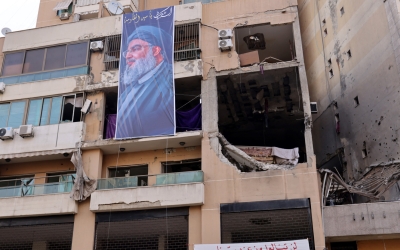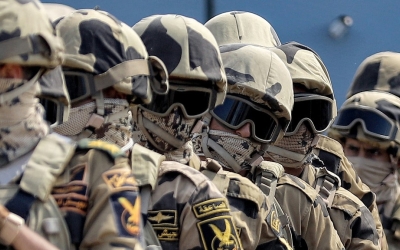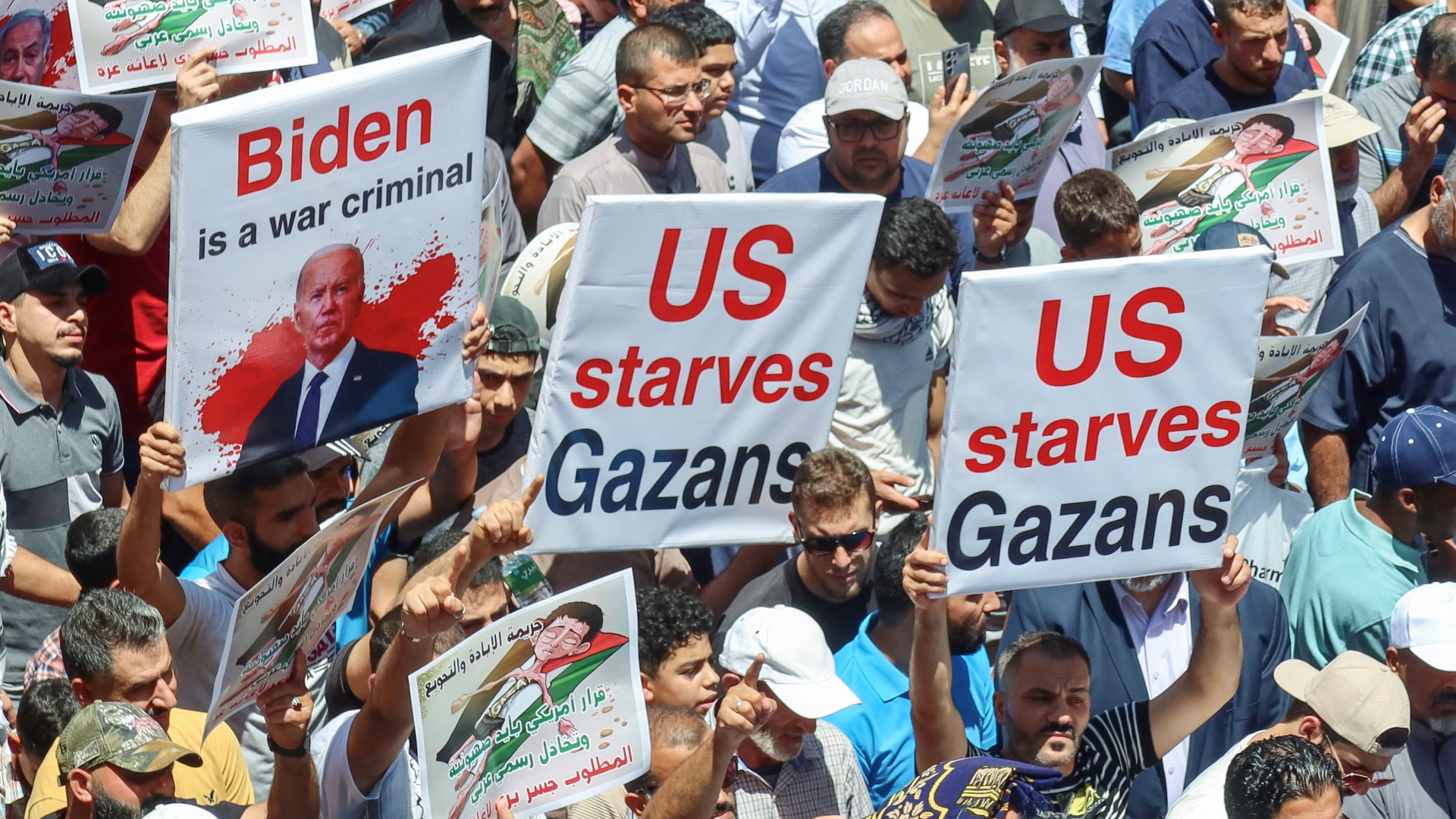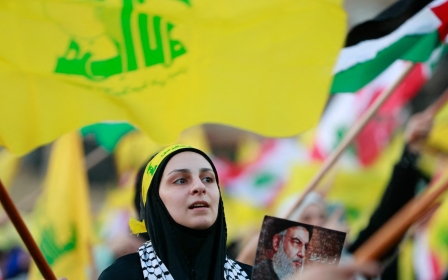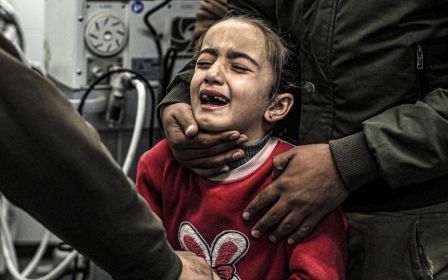War on Gaza: How Hamas lured Israel into a lethal trap
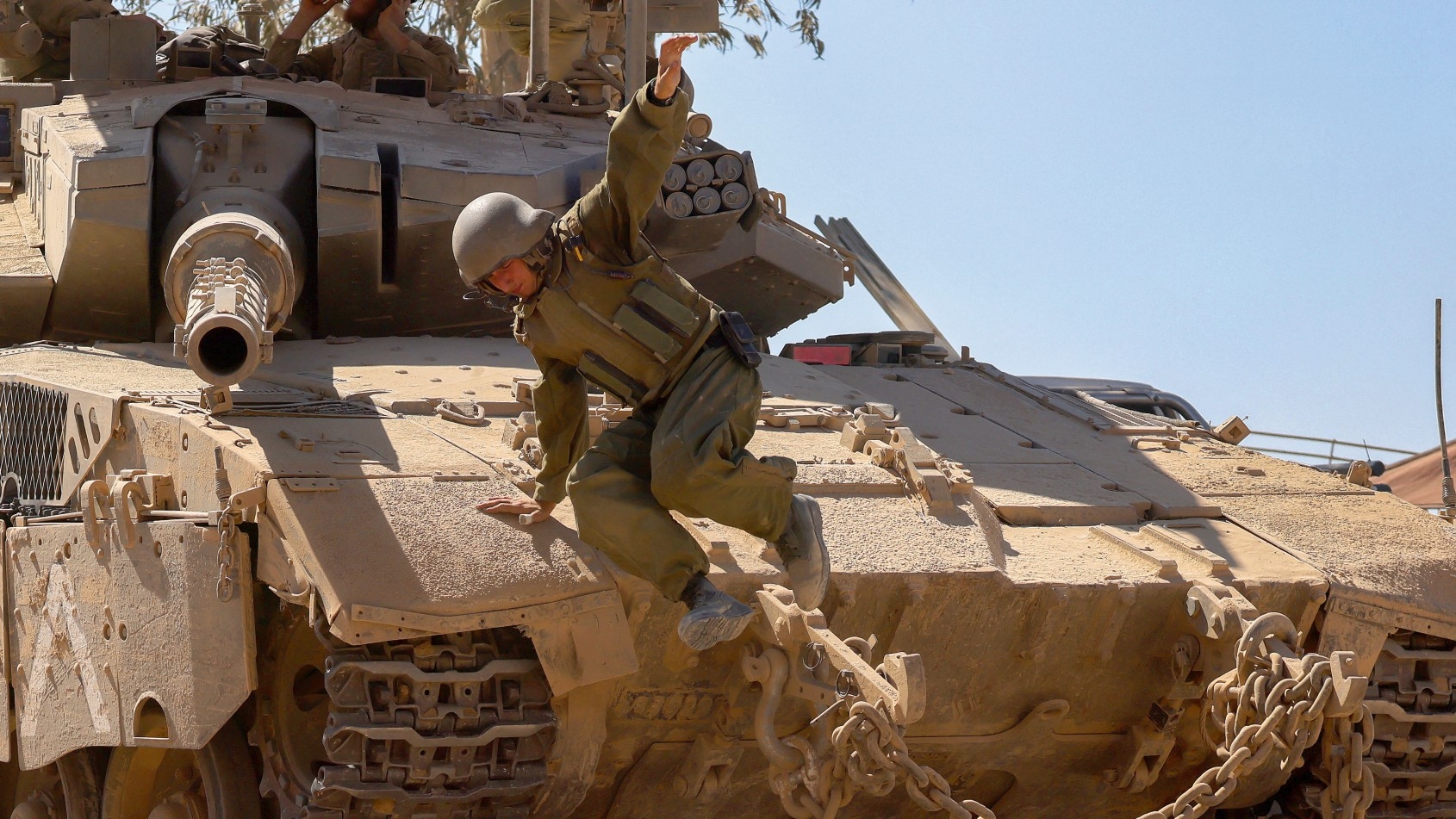
One of the main questions about Hamas' 7 October attacks remains unanswered to this day.
What did Hamas think would happen if it struck Israel on this scale?
Initially, I bought the chaos theory. It went as follows. A limited operation to hit Israeli military targets and take high-value hostages spiralled out of control, thanks to the unexpected collapse of Israel’s Gaza Brigade. Hamas expected most of the 1,400 fighters it sent over the fence that day to be killed. Most of them returned alive.
As Hamas and other armed groups ran out of preordained targets, they fanned out and stumbled across a music festival they did not know was there. The ensuing carnage became, in the words of one Gulf diplomat: "the mother of all miscalculations".
As each month of this war succeeds the last, I am less and less certain that this theory is correct.
New MEE newsletter: Jerusalem Dispatch
Sign up to get the latest insights and analysis on Israel-Palestine, alongside Turkey Unpacked and other MEE newsletters
It did indeed gain traction in the immediate aftermath of the Hamas attack, as Hamas’ allies failed to follow its lead.
On the day his forces struck, Hamas’ military commander, Mohamed Deif, called on the "axis of resistance" allies to join the struggle: "Our brothers in the Islamic resistance in Lebanon, Iran, Yemen, Iraq and Syria, this is the day when your resistance unites with your people in Palestine," he said in an audio message that had been prepared some time before.
Hezbollah started striking Israeli targets in the Shebaa Farms and Israel then responded. But initially the strikes were limited. Two weeks passed before Khaled Meshaal, who heads Hamas’ office in the diaspora, thanked Hezbollah for its response so far, but added pointedly that "the battle requires more".
Hassan Nasrallah, Hezbollah's secretary-general, kept his silence for three more long weeks before declaring that the Hamas operation was "100 percent Palestinian in terms of both decision and execution".
"This operation has no bearing on any decision or move to be taken by any other faction within the resistance axis," Nasrallah said.
All Hamas had to do after 7 October was to wait, keep on fighting and let Israel’s natural aggression and arrogance towards its neighbours do Hamas’ work
It was a point rammed home when Ayatollah Ali Khamenei told Ismail Haniyeh, Hamas’ political leader, that Iran would not intervene directly although it would continue to lend the group its political and moral support.
By now we were in mid-November, and Hamas’ strategy in starting what it plainly intended to be a regional war appeared to be foundering.
Reuters quoted Hezbollah commanders on the border as saying they were taken by surprise by the attack on October 7. " We woke up to a war " they quoted one commander as saying.
But appearances are deceptive. The resistance in Lebanon knew that an attack would take place and Iran had spent two decades helping Hamas build up its extensive and sophisticated tunnel network, according to informed sources. They did not know when the attack would take place, which was a decision that was left to the military leadership in Gaza.
By the time Israel mobilised its forces after the October 7 attack, resistance was ready for a war that would last at least a year.
Dam burst
But by November Hezbollah's involvment in this was slight. Compare that to the words and deeds of Hezbollah and Iran now.
As Israel pre-emptively struck more and more Hezbollah targets, the Lebanese group replied in kind. Yemen’s Ansarallah movement (the Houthis) entered the fray in November with attacks on shipping in the Red Sea.
The turning point came in April when Israel struck a compound of the Iranian embassy in Damascus, killing Brigadier General Mohammad Reza Zahedi, the officer in charge of the Quds Force's overseas operations, and 15 others, including seven other Islamic Revolutionary Guard Corps (IRGC) officers.
Follow Middle East Eye's live coverage on the Israel-Palestine war
Iran launched a massive response - 170 drones, 30 cruise missiles and as many as 120 heavy ballistic missiles directly at Israeli targets, several of which hit Israeli military bases.
A rubicon had been crossed, and the ground for a regional war clearly laid. From then on it was a matter of when, not if.
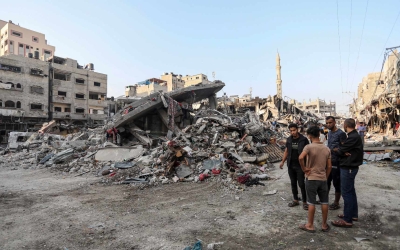
On Tuesday, the head of the IRGC's Aerospace Force, Brigadier General Amir Ali Hajizadeh, said Iran was itching for another opportunity to do the same.
Today, Hezbollah stands on the brink of war, with Nasrallah warning Israel that hundreds of thousands of other fighters were willing to join up - help which Hezbollah did not need at the moment. He even threatened to attack Cyprus if it allowed Israeli war planes to use its bases.
It turned out that all Hamas had to do after 7 October was to wait, keep on fighting and let Israel’s natural aggression and arrogance towards its neighbours do Hamas’ work for it.
Its strategy is working. But was this strategy cobbled together in the aftermath of a botched raid, as everyone had thought on 7 October?
Apparently not. Look back over the speeches of Yehya Sinwar, the leader of Hamas in Gaza.
Predicting the future
In December 2022, on the anniversary of the Islamist group's founding, Sinwar said: "Escalating the resistance in all its forms and making the occupation [authority] pay the bill for occupation and settlement is the only means for the deliverance of our people and accomplishing their objectives of liberation and return.
"He who does not take the initiative today will be sorry tomorrow. The credit goes to him who goes first and proves to be truthful. Don’t allow anyone to take you back to the squares of internal disputes, strafing and fighting. We don’t have time for that while the threat of fascism looms above our heads."
Months later Sinwar gave a speech which accurately predicted the future.
"Within several months, and in my own estimation this will not exceed one year, we shall place the occupation [authority] before one of two choices; either we force it to implement international law, to respect international resolutions, [that is] withdraw from the West Bank and Jerusalem, dismantle the settlements, release the captives and [allow] the return of the refugees…
Israel knew that if Sunni and Shia forces converged, its capacity to manoeuvre would be limited. This is happening now
"Or we render this occupation in a state of contradiction with the entire international will, thus isolating it robustly and immensely, and put an end to the status of its integration within the region and in the entire world, and [reverse] the status of collapse that occurred in the resistance and all the nos fronts [of rejection] that used to exist during the past years."
Which is exactly what has happened. Israel is isolated internationally as never before. It's in the dock of two of the highest international courts and its principal backers, the US and UK, are fighting a rearguard action trying to stop international sanctions mounting.
Sinwar had his critics within Hamas when he emerged as Gaza’s political leader. His attempted reconciliation with his former school and prison mate, Fatah leader Mohammed Dahlan, went down like a lead balloon.
Strong misgivings were also expressed about Hamas’ rapprochement with Syria after the bitter rifts created by the civil war. Political wing of Hamas and the military wings of Hamas and Islamic Jihad were saying and doing different things.
The faction in Hamas that was closely allied to Turkey did not like the rapprochement with Syria and Iran one bit and were not shy about saying so.
It now turns out that this rapprochement was an essential component of Sinwar’s strategy to attack Israel and start a long war.
Brothers again
The rapprochement between former bitter foes in the Syrian civil war goes deeper than Hezbollah’s readiness to allow Hamas to launch attacks against Israel in its area of operation in south Lebanon, along the border with Israel.
Al-Fajr is the armed wing of Al-Jama'a al-Islamiya (JAI), the Muslim Brotherhood in Lebanon. For a long time its forces were numerically insignificant.
Today, they are only thought to number about 500 fighters, but their significance goes beyond their number - and has grown as Israel multiplied its attacks on senior Hezbollah commanders in the wake of the 7 October attacks.
JAI’s condolence statement, issued after the senior Hamas commander Saleh al-Arouri was killed in an Israeli strike in January, claimed that "Lebanese and Palestinian blood mixed to complete the liberation process together".
When a high-profile Hezbollah commander, Talib Sami Abdallah, was killed in an Israeli strike on Jwaya, a town in southern Lebanon, in June, Nasrallah stressed in his tribute how this veteran fighter had gone to the aid of Sunni Muslims in Bosnia.
"By the way, because there is talk about Shiites and Sunnis [divisions], they [Bosnians] are no Shiites, there were no Shiites at the minimum in Bosnia when this dear group of brothers left from our cadres and leaders and stayed there for years in cold and snow far away from home," Nasrallah said.
There have also been high-profile meetings, unimaginable only a few years ago, between former foes in the Syrian civil war. Nasrallah met the head of JAI, Sheikh Mohammed Taqoush. Al Mayadeen, the pro-Hezbollah media outlet, commented: "It is noteworthy that since October 8, 2023, several fighters of the al-Fajr Forces, the military wing of the Islamic Group in Lebanon, were martyred through their participation in operations against Israeli military targets along the border with occupied Palestine."
The new pact between Hezbollah and the Muslim Brotherhood in Lebanon has had its domestic consequences for the Sunni community, which has been without a leader since former Prime Minister Saad Hariri left the scene in 2019.
Last week, when the Arab League removed Hezbollah from the classification of terrorist organisations, former Lebanese Prime Minister Fouad Siniora, a Sunni from the conventional leadership, bristled. "It is necessary to stop giving free gifts to Hezbollah," he told Al Arabiya.
A major regional shift
The partial healing of the sectarian Shia-Sunni rift - while not embraced by a segment of the Sunni population who will not forgive what happened in Syria - represents a major shift in the regional landscape.
Israel has always thrived off a policy of divide and rule. It knew that if Sunni and Shia forces converged, Israel’s capacity to manoeuvre would be limited.
Israel’s continued operation in Gaza has caused so much anger and humiliation in the Arab world that it is burying the deep rifts which emerged after the Arab Spring
This is happening now, and it has real consequences. Military operations in the West Bank have largely passed under the radar, but Israel is now using F16 aircraft to bomb Palestinian refugee camps. The last time it did so was during the Second Intifada.
In reply, resistance fighters have qualitatively upped their game. They are now luring Israeli troops into sophisticated, lethal traps. High-tech roadside bombs have emerged, just as they did against the Americans in Iraq.
One Israeli soldier was killed and others severely injured when a heavy armoured vehicle was blown up by a roadside bomb in Tulkarm.
The attack was filmed by the Al Quds Brigades, which claimed responsibility. Days earlier, a soldier was killed and 16 injured by explosives buried deep under a road in Jenin.
The Israeli death toll in the West Bank has risen significantly. According to the Palestinian health ministry, 540 West Bank Palestinians have been killed since 7 October. In the same period 25 Israelis have died, most of them servicemen.
The Palestinian Authority has apparently warned Israel that the scale of the smuggling of sophisticated arms and parts from Jordan to the West Bank was going up at such a rate that militants will succeed in manufacturing and launching rockets at Israel within a year.
A strategy fulfilled
Even if Sinwar were to die tomorrow, the Hamas leader would have considered his life’s work done.
The stage is set for an Israeli invasion of Lebanon and with it a regional war that could take decades to end.
America’s strategy in backing Israel to the hilt after the Hamas attack, and then attempting to restrain it in a “bear hug”, has placed a large target sign on the back of every US servicemen working in the region, according to 12 former administration officials who resigned over President Biden's policy.
The State Department’s Middle East experts are in open rebellion, and this week a second letter emerged warning of the folly of what Joe Biden has done.
"America's diplomatic cover for, and continuous flow of arms to, Israel has ensured our undeniable complicity in the killings and forced starvation of a besieged Palestinian population in Gaza," the former officials said in the statement.
Arab public opinion is overwhelmingly anti-American. Israel’s continued operation in Gaza has caused so much anger and humiliation in the Arab world that it is burying the deep rifts between nationalist and Islamist political forces which emerged after the Arab Spring over 13 years ago.
That is some achievement.
Poll after poll echoes this trend. In November last year the Washington Institute for Near Eastern Policy found that an average of 40 percent of respondents in Egypt, Iraq, Jordan, Lebanon, Palestine and Syria said that Iran’s actions were having a positive impact on the war.
The Arab Barometer found that Iran’s supreme leader had surpassed the approval ratings of the Saudi crown prince or Emirati president.
The same thing happened after the 2006 Israeli invasion of Lebanon, but the difference today is how much better armed the resistance is, and how much weaker militarily the Arab states are.
The real irony is that Israel walked willingly into a trap of Hamas’ making.
If Israel had bowed to the pressure of Biden and the UN to end the war in Gaza without dismantling Hamas, it would have sustained a tactical defeat that would have broken the right-wing coalition apart.
But if, as Hamas fully expected it would, it continued with the war in Gaza regardless of the human cost, it would provoke a regional war the US would be powerless to contain or stop.
This is the course Israel has now set itself on. Even if a ceasefire agreement is reached between Hamas and Israel, it is now fully understood in Israel that this would be a temporary respite, an opportunity for army reservists to recover before the inevitable attack on Lebanon.
If, as Hamas fully expected, Israel continued with the war in Gaza regardless of the human cost, it would provoke a regional war the US would be powerless to contain or stop
Avigdor Lieberman, an opponent of Prime Minister Benjamin Netanyahu and an implacable foe of his far-right religious Zionist allies, said Hezbollah and Hamas can only be defeated if Iran is too.
He wrote on X: “In this confrontation between Israel and the Axis of Evil, we must win, and without defeating Iran and eliminating its nuclear program, neither Hezbollah nor Hamas can be defeated.
“In order to stop the Iranian nuclear program, which is already in the weapons stages, we must use all the means at our disposal. It should be clear that at this stage it is not possible to prevent nuclear weapons from Iran by conventional means.”
Great suffering has been born by the Palestinians of Gaza in the last nine months. Starvation is an even crueller death than indiscriminate carpet bombing. The cost of this strategy is high.
But under an increasingly brutal occupation whose only aim is to force as many Palestinians as possible to leave, armed resistance under a militant leadership that refuses to surrender or scuttle off into exile has become the collective choice of Palestinians wherever they live.
This is an enduring change in the calculation Israel has made over the decades to subdue both the Palestinian population and the region on whom it has imposed itself.
But, whatever happens now, Hamas’ strategy has been more effective than was deemed possible nine months ago. Israel has now got a real war on its hands, and on all fronts. Furthermore, it is a war that will not be easily stopped.
The views expressed in this article belong to the author and do not necessarily reflect the editorial policy of Middle East Eye
Middle East Eye delivers independent and unrivalled coverage and analysis of the Middle East, North Africa and beyond. To learn more about republishing this content and the associated fees, please fill out this form. More about MEE can be found here.



